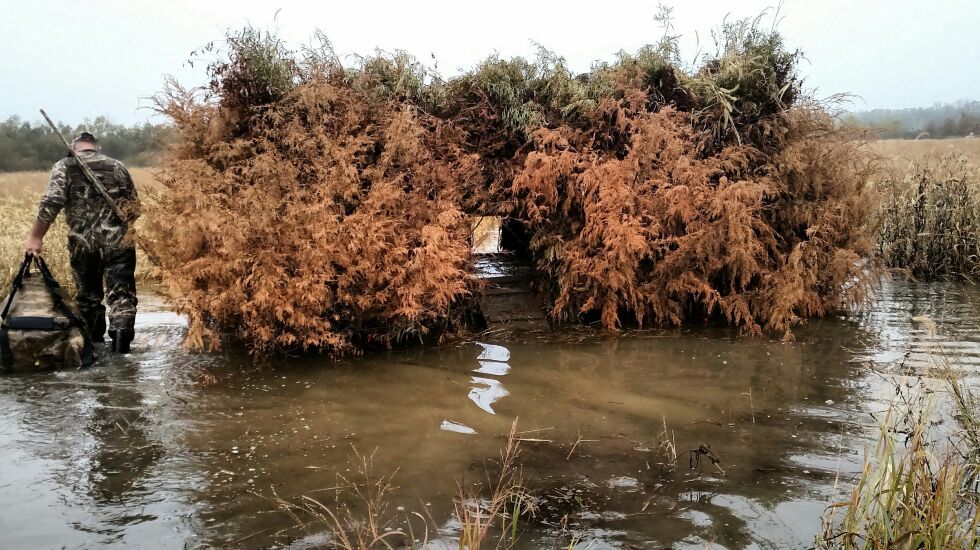
Illinois became the latest Lake Michigan state to suggest precautions for waterfowl hunters on avian flu as waterfowl seasons approach.
At the end of its general fall announcements for waterfowl hunters, the Illinois Department of Natural Resources included this advice:
Highly Pathogenic Avian Influenza (HPAI) reminder
In coordination with other state and federal agencies, IDNR continues to monitor for outbreaks of the H5N1 strain of HPAI that was observed in Illinois during spring 2022. Similar mortality events may occur as waterfowl arrive in Illinois from northern breeding grounds during the fall migration.
IDNR reminds waterfowl hunters to take precautions and thoroughly cook game meat to an internal temperature of 165 degrees Fahrenheit. Avoid handling sick or dead waterfowl found in the field. Do not allow dogs and other pets to consume waterfowl that died from unknown causes. Further guidance for hunters can be found at the following link: https://www.aphis.usda.gov/publications/animal_health/fsc_hpai_hunters.pdf
If five or more wild birds are found deceased of unknown causes in one location, please contact an IDNR district wildlife biologist at: https://www.wildlifeillinois.org/sidebar/contact-an-idnr-district-wildlife-biologist/
That final paragraph is one hunters, who will be the eyes on the water for months, would do well to particularly remember.
On Sept. 12, the Indiana DNR issued this alert, “DNR advises waterfowl hunters to be aware of possible highly pathogenic avian influenza surge,”
It included this specific advice:
Hunters can several precautions to slow the spread of avian influenza:
Do not harvest birds that appear obviously sick or found dead
Process birds outdoors or in a well-ventilated area
Wear gloves and wash hands before and after handling carcasses
Disinfect all equipment used on dead birds (e.g., knives, surfaces)
Refrain from eating, drinking, smoking, and touching your eyes during processing
Double-bag feathers and all bird remains before disposal. Place bird remains in the inner bag and tie it closed. Dispose of gloves in the outer bag before tying it closed.
Prevent contact between all parts of wild birds and domestic birds
Cook meat thoroughly
Read more about avian influenza at on.IN.gov/avian-flu.
Reading the list, I think at least some of that advice is already being done by hunters even before this latest outbreak of avian flu.
On Aug. 25, the Michigan DNR issued this advice, “DNR urges waterfowl hunters to use caution, expects fall surge in highly pathogenic avian influenza.”
It included this advice, some of it more specific:
Safety guidelines for hunters
Harvest only waterfowl that act and look healthy. Do not handle or eat sick game.
Field dress and prepare game outdoors or in a well-ventilated area.
Wear rubber or disposable latex gloves while handling and cleaning game.
Remove and discard intestines soon after harvesting and avoid direct contact with the intestinal contents.
Do not eat, drink, smoke or vape while handling carcasses.
When done handling game, wash hands thoroughly with soap and water (or alcohol-based hand sanitizer if soap and water are unavailable), and clean knives, equipment and surfaces that came in contact with game. Wash hands before and after handling any meat.
Keep waterfowl cool (either with ice or refrigeration), below 45 degrees Fahrenheit, until processed, and then refrigerate or freeze.
Thoroughly cook all game to an internal temperature of 165 degrees Fahrenheit before eating it.
There’s something eye-catching and thoroughly modern about the specificity of the line, “Do not eat, drink, smoke or vape while handling carcasses.”







